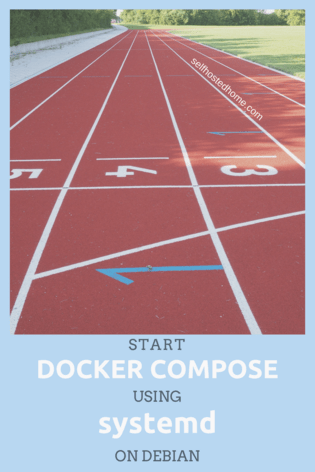Oct 06, 2018 sudo apt install -y nvidia-docker2 sudo systemctl daemon-reload sudo systemctl restart docker 👍 20 🎉 2 ️ 2 🚀 2 snape6666 mentioned this issue Jun 13, 2020. How to Install and Setup Docker on Ubuntu 18.04. Docker is an open-source technology that is used to deploy applications through containers.It is a relatively new platform but is constantly updated and features a wide community of users. Apr 17, 2019 HASS.io on Ubuntu Server / Debian using Docker - Final Thoughts. Whether you use Home Assistant or HASS.io is your call. I am liking my move from Home Assistant to HASS.io on Docker. However, it certainly was not an easy move. I am pretty comfortable with Docker and Docker compose and I was cruising on my previous set up.
- Docker Debian Systemctl Command Not Found
- Docker Debian Install Systemctl
- Docker Ubuntu Systemctl
- Docker Debian Systemctl Command
This page describes various methods for installing Caddy on your system.
Official:
Our official packages come only with the standard modules. If you need third-party plugins, build from source withxcaddy or use our download page.Community-maintained:
Static binaries
Simply downloading a Caddy binary does not install it as a service, but can be useful in dev or when upgrading an existing installation.
- View releases on GitHub (expand 'Assets')
Debian, Ubuntu, Raspbian
Docker Debian Systemctl Command Not Found
Installing this package automatically starts and runs Caddy for you as a systemd service named caddy using our official caddy.service unit file.
This package also comes with a caddy-api systemd service using our official caddy-api.service unit file, which is disabled by default. If you plan to configure Caddy solely through its API, then you should disable the caddy service, and enable the caddy-api service.
Stable releases:
Testing releases (includes betas and release candidates):
Fedora, RedHat, CentOS
Fedora or RHEL/CentOS 8:
RHEL/CentOS 7:
Docker
DigitalOcean
Linux service
Manually install Caddy as a service on Linux with these instructions.
Requirements:

caddybinary that you downloaded or built from sourcesystemctl --version232 or newersudoprivileges
Move the caddy binary into your $PATH, for example:
Test that it worked:
Create a group named caddy:
Create a user named caddy, with a writeable home folder:
If using a config file, be sure it is readable by the caddy user you just created.
Next, choose a systemd service file based on your use case:
caddy.serviceif you configure Caddy with a file.caddy-api.serviceif you configure Caddy solely through its API.
Docker Debian Install Systemctl
They are very similar but have minor differences in the ExecStart and ExecReload commands to accommodate your workflow. Customize the file accordingly.
Double-check the ExecStart and ExecReload directives. Make sure the binary's location and command line arguments are correct for your installation! For example: if using a config file, change your --config path if it is different from our example.
The usual place to save the service file is: /etc/systemd/system/caddy.service
Docker Ubuntu Systemctl
After saving your service file, you can start the service for the first time with the usual systemctl dance:

Verify that it is running:
When running with our official service file, Caddy's output will be redirected to journalctl:
If using a config file, you can gracefully apply any changes:
You can stop the service with:
Do not stop the service to change Caddy's configuration. Stopping the server will incur downtime. Use the reload command instead.Homebrew
Note: This is a community-maintained installation method.
Webi
Note: This is a community-maintained installation method.
Linux and macOS:
Windows:
You may need to adjust the Windows firewall rules to allow non-localhost incoming connections.
Chocolatey
Docker Debian Systemctl Command
Note: This is a community-maintained installation method.
